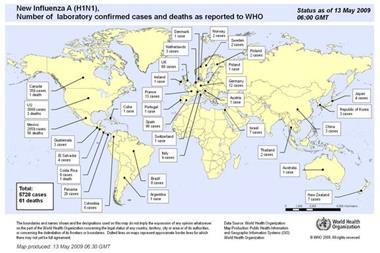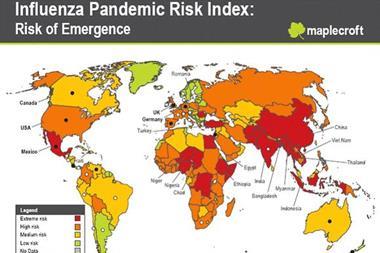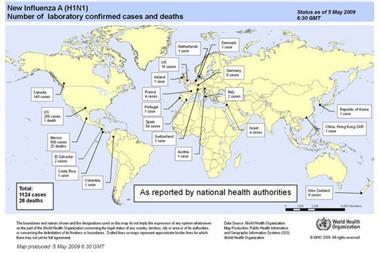Essential advice on dealing with a potential swine flu pandemic
Lyndon Bird, director of the Business Continuity Institute, gives businesses advice on dealing with a potential swine flu pandemic
What is the likely impact of a swine flu pandemic on businesses?
The primary impact of a swine flu pandemic will be higher levels of staff absence than normal and for a longer period of time. As the term pandemic refers to the spread of the infection rather than the severity, the time of absence will clearly depend on the severity of the virus and any intervention that the Government may take to delay or mitigate the spread of the virus through restricting the movement of people. We recommend that businesses read this BCI advice in conjunction with advice from health authorities on how to reduce the spread of the flu virus within the work environment (e.g. the Department of Health’s “Pandemic Flu – Guidance for Businesses”).
How should they respond?
30% organisations already have a Business Continuity Plan which deals with the impact of a loss of people on keeping the organisation working according to research from the Chartered Management Institute and UK Cabinet Office. However some 57% of organisations in the same survey either had no plans or weak plans to deal with pandemics. For those who do not have a plan or the time to develop one against the BCI’s Good Practice Guidelines, there are some essential steps that need to be considered:
• What are the activities are essential to keep your business running
You will not be able to do everything. If you are in a people intensive business or key aspects of your business rely on people, you will need to prioritise what is most important to keep it running. Remember that your suppliers and customers will be doing the same, so communicate with them.
You also need to review staff policies and insurance policies to make sure you have the flexibility you may require and cover for staff and interruptions to your business.
• Where are you going to continue to run your business
You may need to enable staff to work from home or different office locations. You may find that customers or suppliers will help you out as well.
• Who are you relying upon
You are not going to have a choice on who falls ill, but you might want to reduce the likelihood of infection by reducing human contact for those with key skills, who cannot be easily replaced.
• When are you going to take these actions
National governments and public health agencies will provide guidance on the extent and severity of the pandemic. It is likely that they will have a process of increasing mitigating measures depending on the profile of the flu virus. Your response needs to reflect the advice you receive from these sources.
If schools and child care facilities are closed then many businesses will see a significant increase in absence rates beyond those enforced through illness alone. You should look at validating your thinking/plan against absence levels of at least 25% and up to 50% for periods of two and four weeks respectively in order to really understand the impact that the pandemic could bring.
• How are you going to implement these steps
You need to work out who is going to perform the key tasks to deliver on the plan you have developed. Communication with staff will be key as you will need their goodwill and support to work through the disruption. They will be anxious and have their own problems. You also need to plan how you will respond to enquiries from customers and suppliers, and potentially the media.
• How does business continuity planning help
Hopefully taking these measures will mean that organisations can ensure they keep trading through a pandemic even if they cannot deliver all of the services that they would normally provide. More fundamentally if you are well prepared then you are more likely to be able to respond faster to the initial disruption, maintain a level of continuity and recover quicker back to normal business operations. In addition customers and suppliers will recognise organisations that seem to be well managed in difficult times and this will clearly improve brand and reputational value when the recovery occurs.




















No comments yet